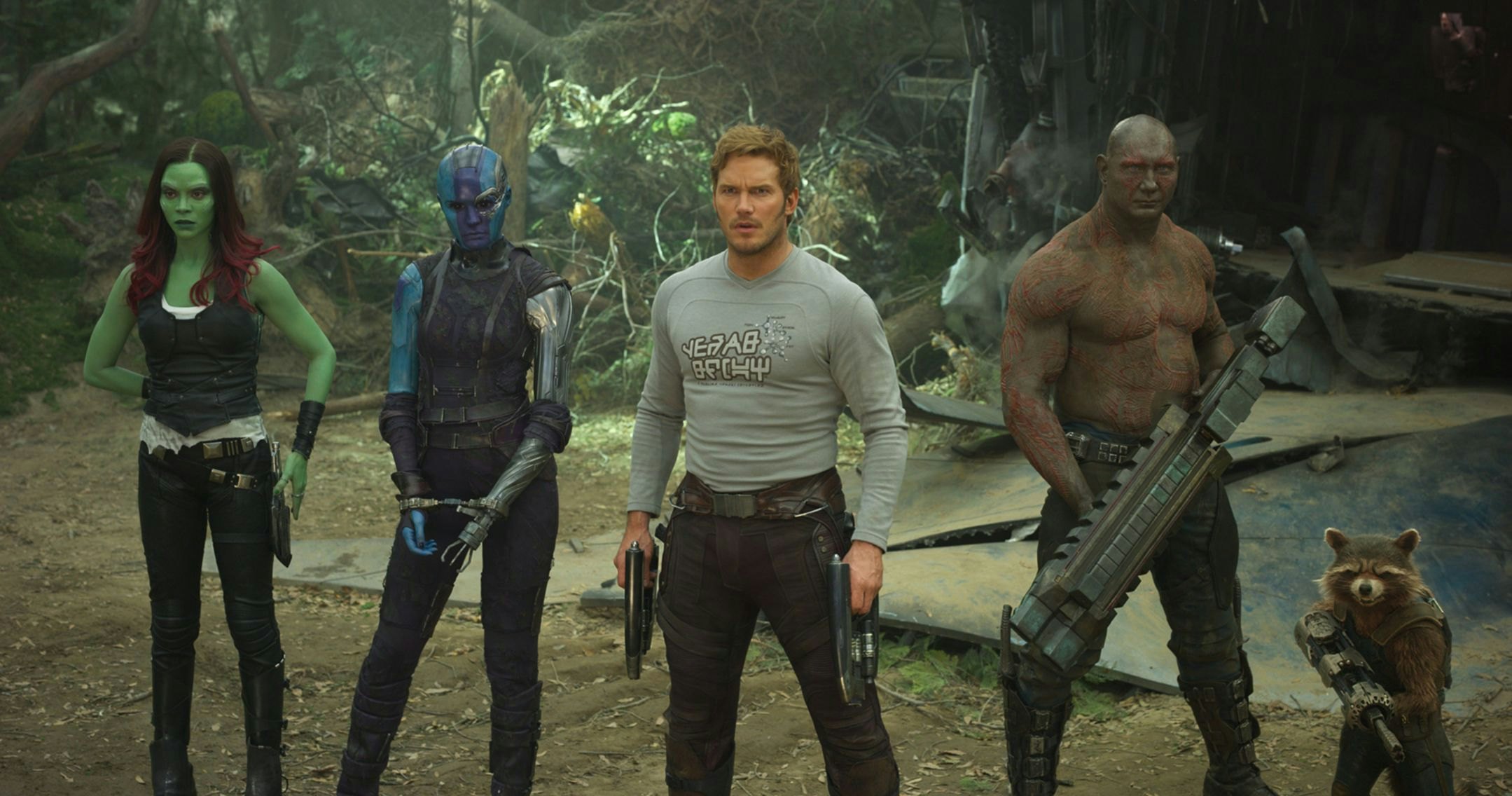
Dan Abnett remembers when he learned his semi-obscure comic book was becoming a movie.
“I got a call from the editor who said, ‘You’re never gonna guess the next Marvel movie,’” Abnett tells Inverse. At the time, the Marvel Cinematic Universe had only just successfully launched with hits like Iron Man, Thor, and Captain America: The First Avenger. That’s when Abnett heard whispers Marvel Studios was looking to make a space sci-fi. He assumed it would be Silver Surfer.
“They went, ‘No, it’s Guardians of the Galaxy. And it’s our Guardians,’” Abnett says. “I was astonished.”
Before James Gunn’s Guardians of the Galaxy shattered records and expectations, its rag-tag heroes Star-Lord, Gamora, Drax, Groot, and Rocket (and Mantis, who joined the sequel in 2017) first united in the pages of the 2008-2010 comic book series that sourced its ensemble of oddballs and catchy alliterative title from deep in Marvel’s history.
“It was definitely [our] version that inspired him.”
The book was helmed by Dan Abnett and then-creative partner Andy Lanning, who tapped into their shared obsessions for Star Trek and the British sci-fi comic 2000 A.D. to revive the forgotten franchise.
“There was a great deal of freedom to do whatever we wanted to do because we weren't dealing with Thor and Spider-Man,” Abnett says. “We could do anything because nobody cared.”
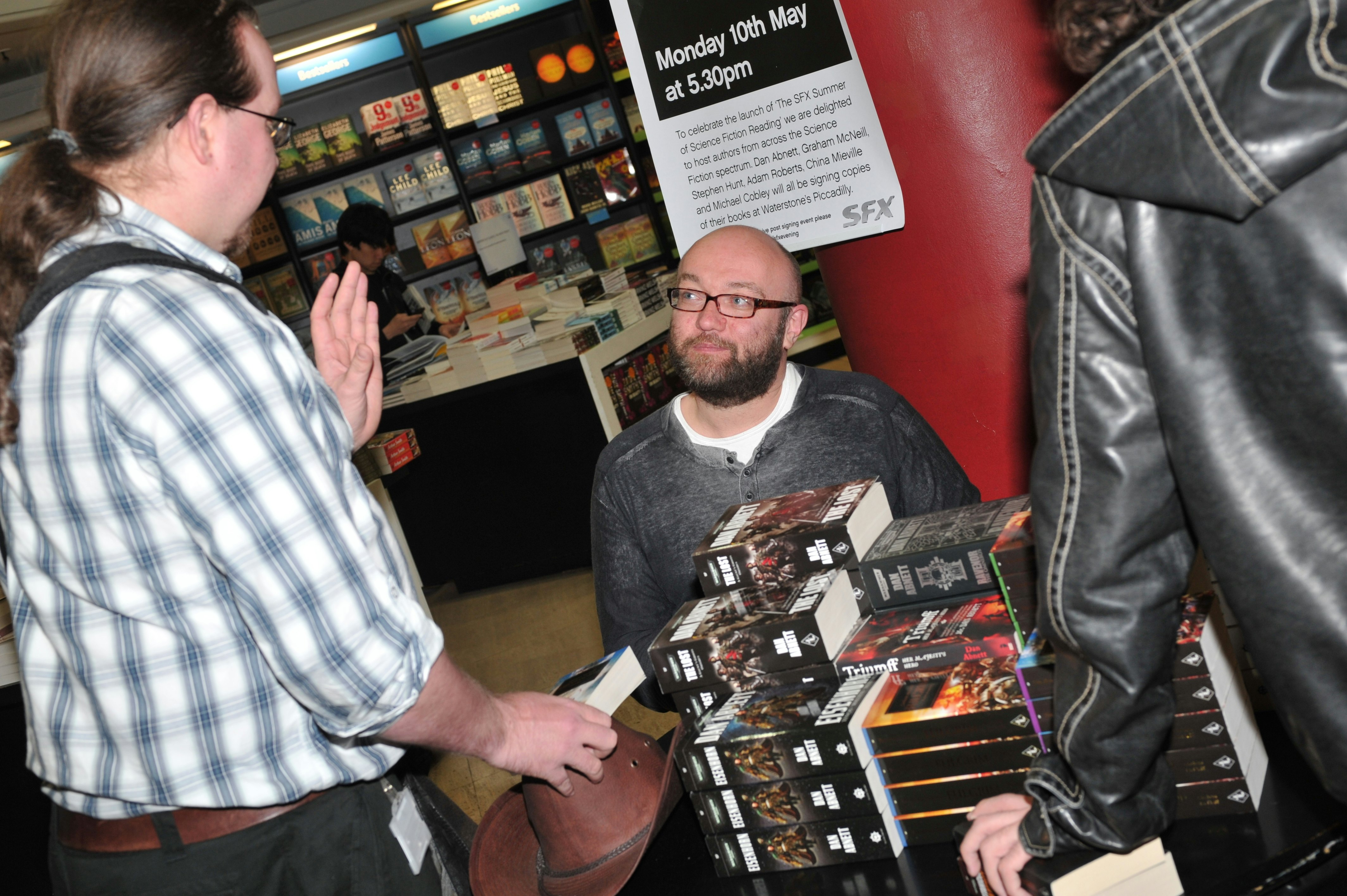
That Marvel fans now say “I Am Groot!” while snapping selfies at Disneyland is because of Abnett and Lanning. Abnett even paid a visit to the set of the 2014 film, where director James Gunn showed them how much of it was modeled after their work.
“It was definitely [our] version that inspired him,” Abnett says. “Now I walk down the street and see kids with Rocket Raccoon lunch boxes.”
The Guardians of the Galaxy are icons today, but their history as overlooked underdogs is emblematic of the MCU, a billion-dollar franchise built out of obscure characters sourced from the depths of Comic-Con. But the Guardians are a case of that song played on repeat. It didn’t only happen in movies. It happened years prior in comic books, the wellspring of the MCU.
“The bottom of Marvel’s toy box”
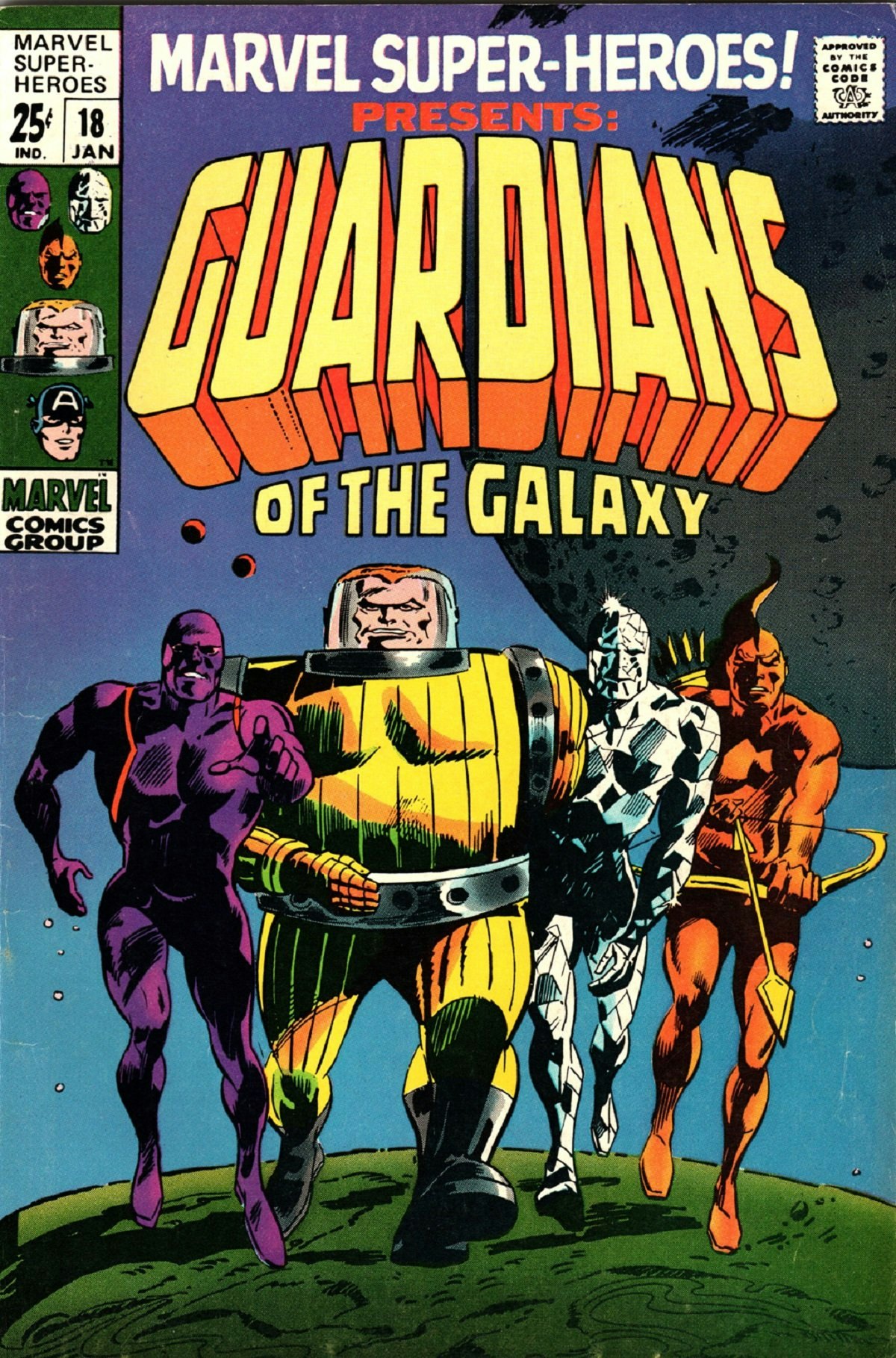
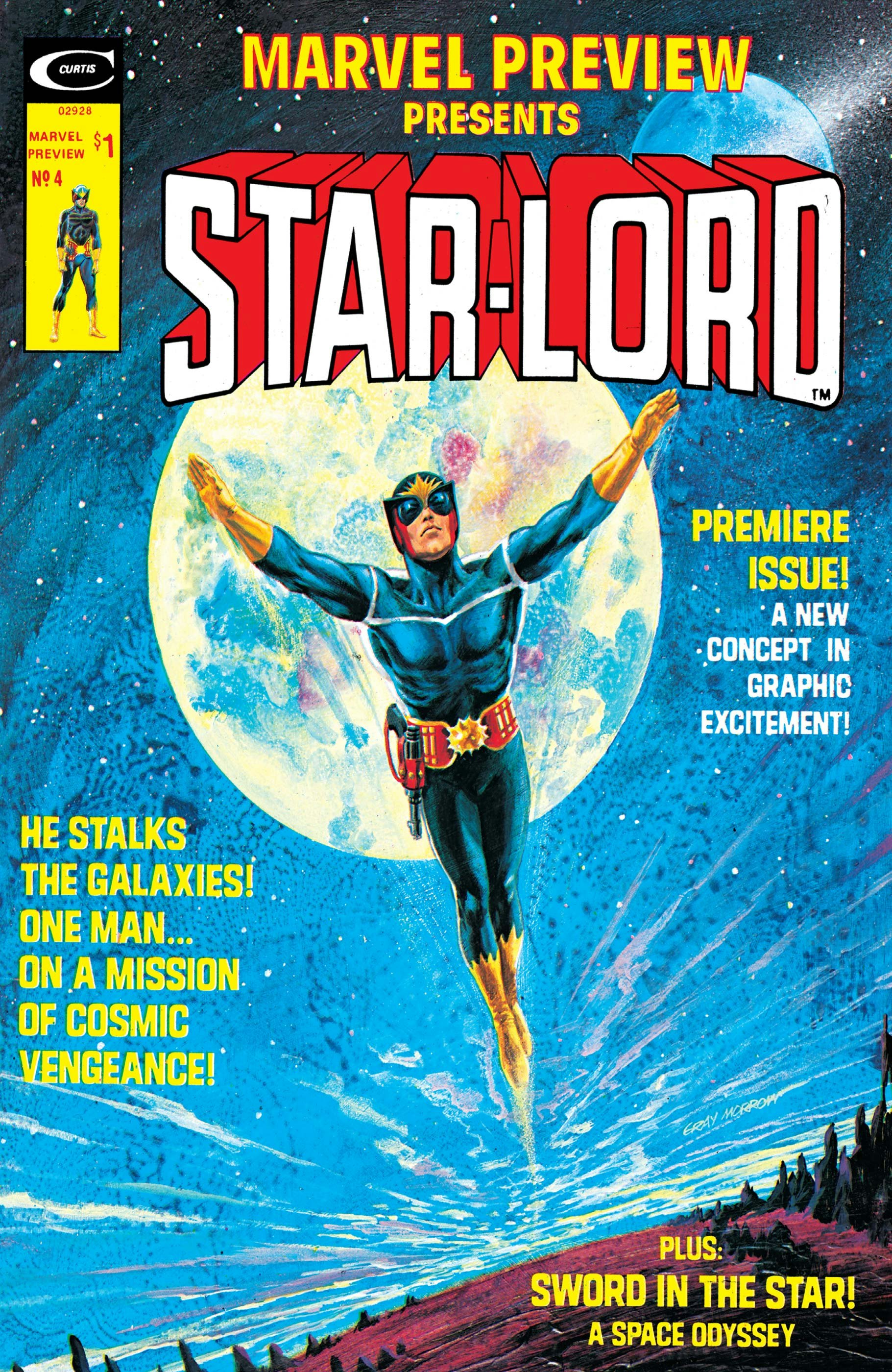
The seeds for the Guardians of the Galaxy, as fans know them today, were planted in Annihilation: Conquest, a sequel to a crossover comic starring virtually all of Marvel’s space-based heroes and villains.
At its helm were Abnett and Lanning, who had just proved their chops with a miniseries on the character Nova and were hoping for something bigger. “The idea was that if [Annihilation: Conquest] worked, we would get a team book,” Abnett says.
Conquest featured all the characters who would star in Abnett and Lanning’s Guardians. They were created separately by different artists at different times, but they had one thing in common. They occupied “the bottom of Marvel’s toy box,” says Abnett. “Nobody cared about them. They hadn't worked for whatever reason. They hadn't become big characters.”
“You didn't try to hide that this is a team that doesn't get on and work well.”
But Abnett had been in love with these misfit toys for years. In his native U.K., their original comics were reprinted in the black-and-white series Star Wars Weekly, which first printed Marvel’s licensed Star Wars comic before running out of issues and turning to Marvel’s sci-fi stories.
“We churned through the stuff very fast,” Abnett says. It was through Star Wars Weekly that Abnett read Chris Claremont and John Byrne’s Star-Lord, and the Bill Mantlo/Keith Giffen story “The Sword and the Star” (where Rocket Racoon debuted under the name “Rocky”). Abnett had a gut feeling his childhood heroes could be bigger stars. “We were trying to resuscitate them like we had done with Nova; make them more relatable and bring them back in popularity.”
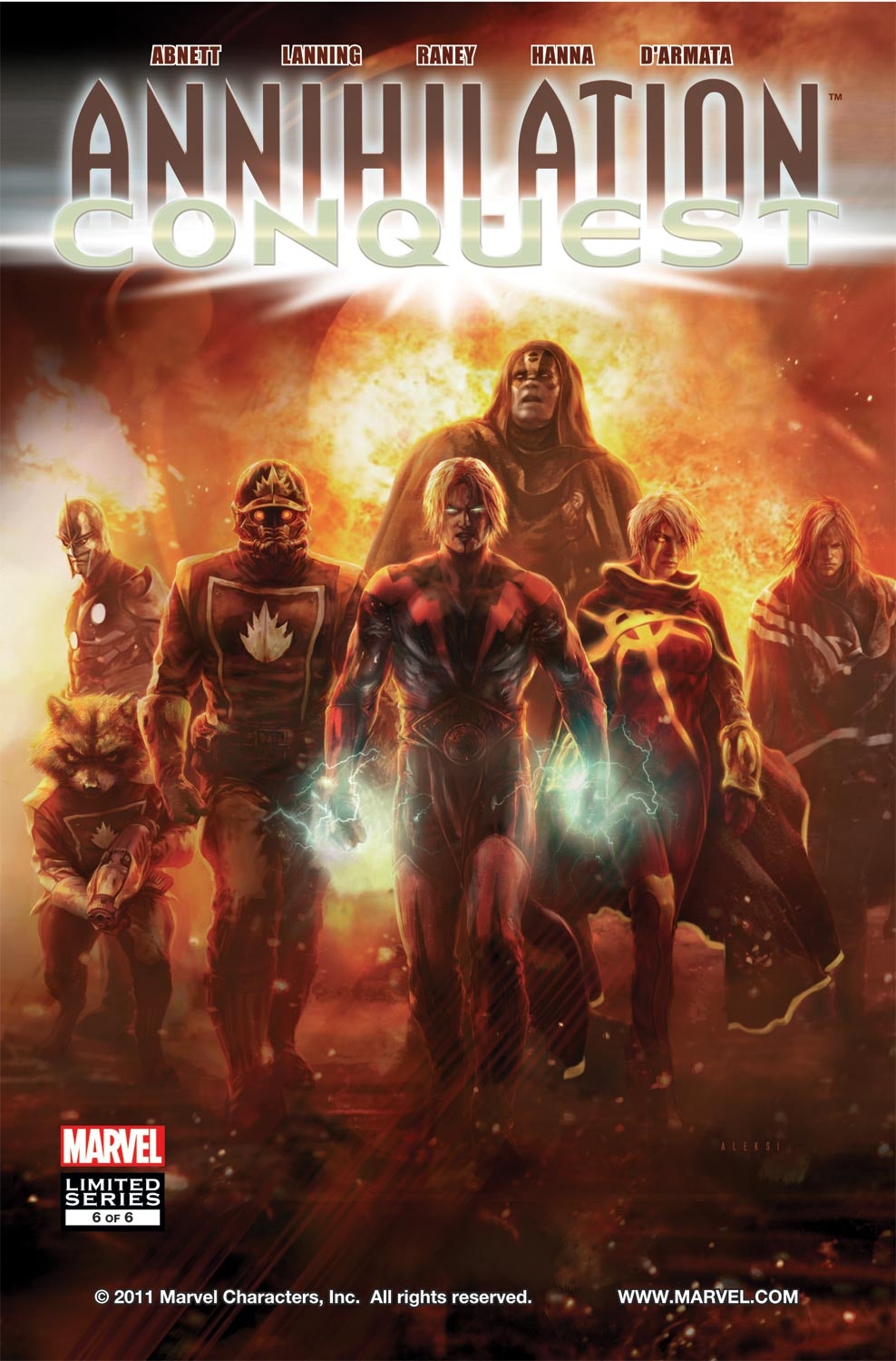
As Annihilation: Conquest came to an end, Abnett and Lanning worked with Marvel editor Bill Rosemann to draft a new team out of its remaining heroes. They gravitated to Drax and Gamora. Then came the rest.
“I was very keen on Star-Lord,” says Abnett. “I think Star-Lord, in that wisecracking, mistake-prone way, is a more interesting character when he’s bouncing off a team than when he was a conventional hero.”
Abnett and Lanning also paired Rocket with Groot, which slowly started the reinvention of Groot from his original monstrous origins into a lovable giant with a limited vocabulary. “I thought Rocket with Groot as a partnership was a really interesting combination,” Abnett says. “As a double act, they become iconic.” He also tried to rope in cult Micronauts figures like Rom the Space Knight, but legal issues kept him from realizing his ultimate dream team. “I wanted to use the characters I'd always thought were cool and find a way of putting them together.”
Unlike with the Avengers, it didn’t matter if the Guardians complemented each other in any way. The inclusion of Adam Warlock (soon to be played by Will Poulter in Vol. 3) was an example of the series riffing on its own discordance. “Rather than trying to find an organic way of connecting [these characters], we chose to play out the idea that these people have been thrown together and there is disconnect,” Abnett says. “You made a feature of it. You didn't try to hide that this is a team that doesn't get on and work well.”
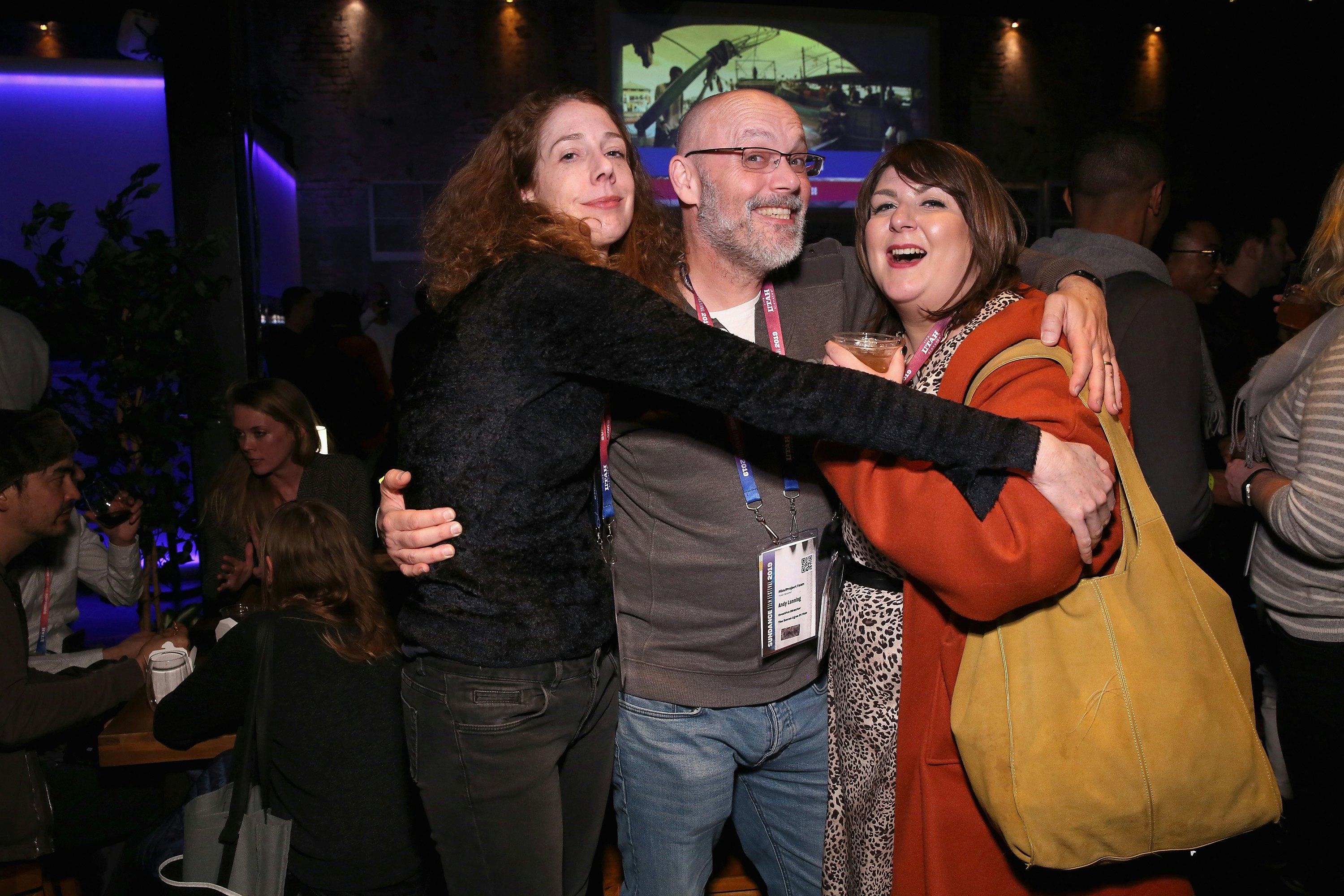
Regardless of their choices, all decisions felt inconsequential as there was not a single character from the pool Marvel felt they could ruin. “We weren’t dealing with characters you had to be careful about,” he says. “As a result, the stories were more dynamic and full of surprises because you really could do some radical things.”
In an email to Inverse, editor Bill Rosemann says a Guardians of the Galaxy book almost didn’t even happen, as Marvel expected a different response from readers after Annihilation: Conquest. “We thought that Phyla-Vell, the daughter of the original Captain Marvel, would be our breakout character,” Rosemann writes, “but as the readers reacted so positively [to the other characters], our ragtag crew of underestimated outlaws demanded the spotlight.”
“We made it a gag in the comic, that nothing was original.”
The last riddle to solve was the name. Brainstorming was brief, as the only name “to have any resonance” was Guardians of the Galaxy, according to Abnett. The title dates to 1969, when then-Marvel editor Roy Thomas pitched a military comic that was retooled into science-fiction by Stan Lee and Arnold Drake. It had a different roster of characters and was swiftly canceled due to flat sales. Years later, the success of Star Trek: The Next Generation spurred Marvel’s editor-in-chief Tom Defalco to reboot the series. It lasted 62 issues.
For the 2008 revival, Abnett felt it suited this new team. “They're stealing everything else. Why wouldn't they steal a name?” he says with a laugh. “We made it a gag in the comic, that nothing was original. They would do this. That’s how the book got launched.”
“We created something so popular”
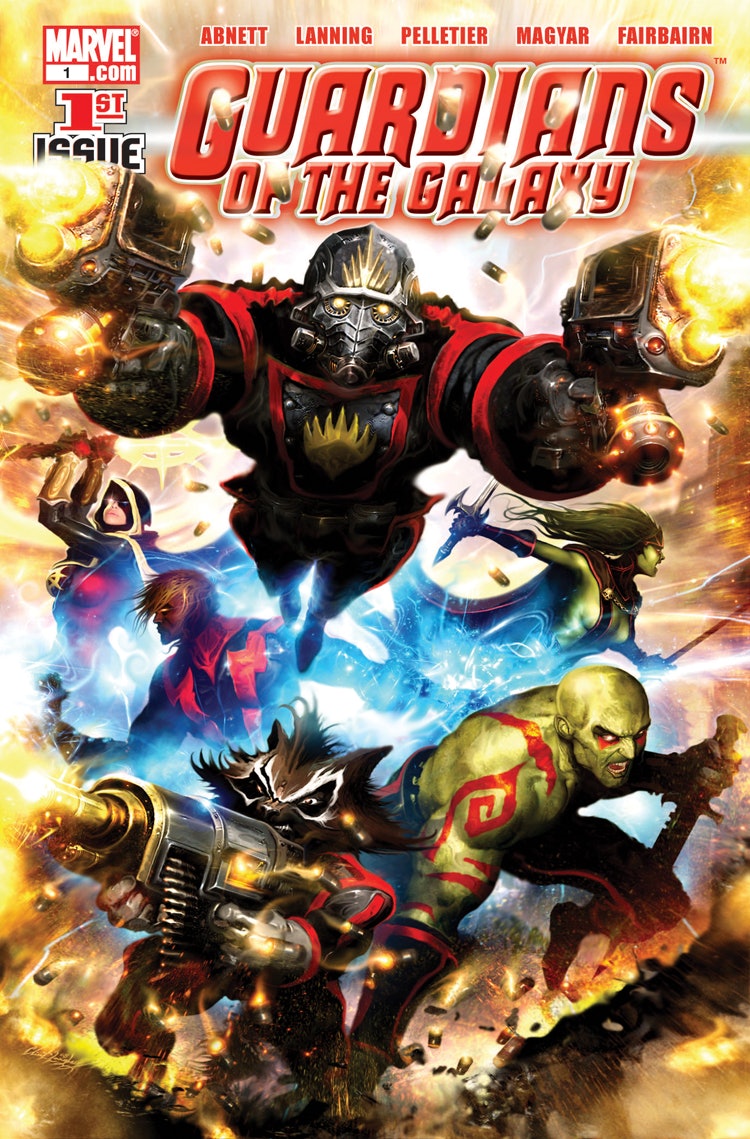
Guardians of the Galaxy ran for almost two years as an ongoing series at Marvel. It ended in April 2010.
“We’d done a pretty good job on a comic people like,” Abnett says. “It's not set the world on fire, but it was a very handsome success.”
Its longevity is more impressive with context, factoring both its unknown characters and status as a “cosmic” title, a genre Abnett says had fallen out of fashion at Marvel in the late 2000s.
“They didn’t have faith in it,” Abnett says on the launch of Annihilation. “They didn’t think there was a big market for that sort of thing.” The success of the event and its later expansion to spawn books like Guardians of the Galaxy surprised many at Marvel, including editor-in-chief Joe Quesada. “Joe repeatedly would say to me, ‘I don’t get cosmic.’ But there was an audience for it, and it worked really well. I had an enormous amount of fun.”
“We definitely had our doubters,” Rosemann adds.
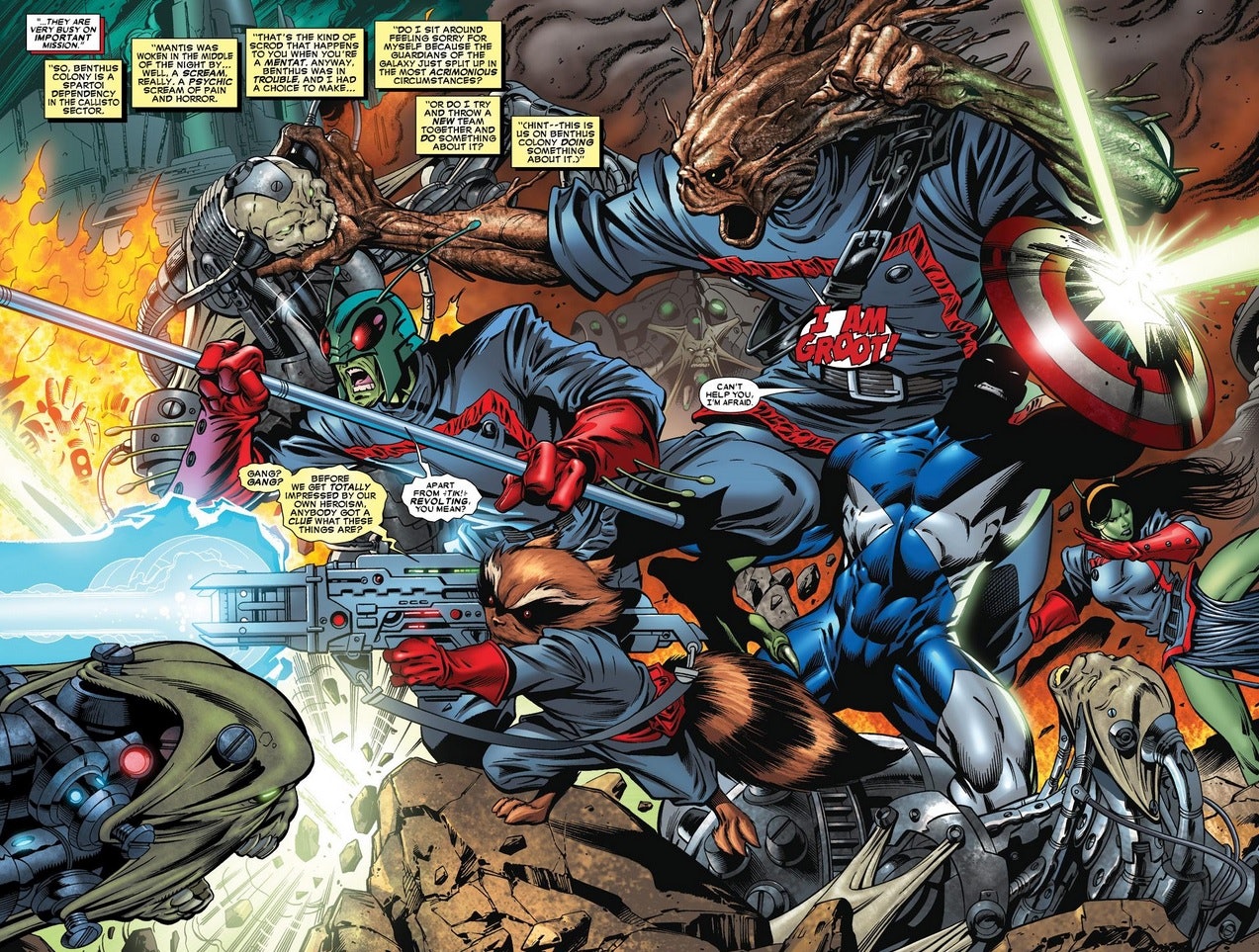
Abnett admits his “ownership” of the Guardians of the Galaxy only goes so far. After all, the characters already existed before they worked at Marvel, as did the name. (On inventing “I Am Groot,” Abnett takes the full “blame or credit.”) But he nevertheless feels an attachment to them all.
“It's hard to say you invented [it],” he says, “but putting characters together and actually defining things, we created something so popular it was deemed a showcase comic that had to be treated with the same care and attention the big names were given.”
Abnett was moved when he saw his name in the end credits of the 2014 film.
“Of course that should happen. The creator should be credited,” he says. “But I was pleased they remembered. It was lovely to see.”
Marvel’s comic creators rarely benefit from the record profits of its feature films. But when it comes to Guardians, Abnett isn’t resentful.
“It would be very easy to get very bitter about putting a lot of ideas on a comic that wasn't mine, seeing those make billions and think, I should be a little bit richer by now,” he says. “I am fully aware working for Marvel was work for hire. I never feel any regret.”
Instead, he feels pride.
“What I do feel is, That wouldn't be there except for a number of people. I'm one of them. There are things I can point to [about the Guardians of the Galaxy] that are me.”
“It fundamentally changed Marvel Comics”
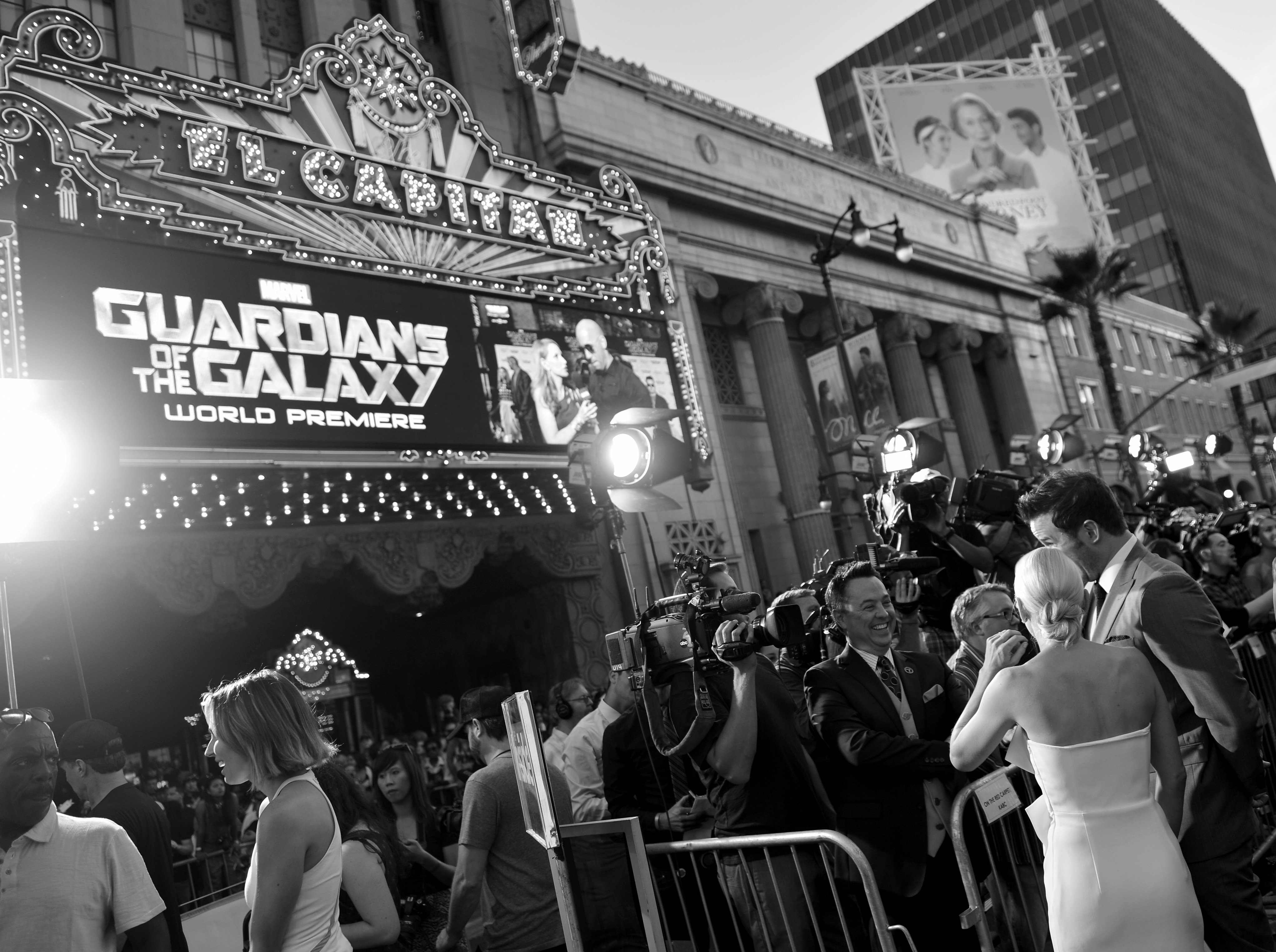
The legacy of Abnett and Lanning’s Guardians of the Galaxy is apparent to its fans, some of whom now write the Guardians themselves.
Jackson Lanzing and Collin Kelly, who met and bonded over a shared love for Annihilation: Conquest while in college, have their own run on Marvel’s Guardians of the Galaxy now on shelves. Their first issue was released on April 12, and their second is slated for May 27.
They praise the Abnett/Lanning series as exemplary and underrated. “It completely rips,” Lanzing tells Inverse. “They’re incredible books that set up stuff that I think we’re very much living in the shadow of.”
“If you don’t care about the Guardians of the Galaxy, it’s easy to overlook that seminal run,” adds Kelly, “but that run is fucking amazing.”
“It gave them an IP they’re still using.”
While Kelly and Lanzing are introducing their own spin to the Guardians of the Galaxy, with a distinct space-Western vibe, they tell Inverse their series is a symbolic end to the “origin story” told by Abnett/Lanning.
“We are the beginning of a new phase for the Guardians,” says Lanzing. “They found family [in Abnett/Lanning’s comics]. That’s volume one. We’re kicking off volume two.” The writers resist putting themselves in the same league as their predecessors, “but that opportunity, and where we’re starting, is designed around that.”
Lanzing commends the series for reinventing the Guardians, which even the best comics in Marvel’s history rarely achieve.
“This rehabbing of different things in the Marvel canon and turning it into something for everyone, that’s a creation of those guys. You rarely create something fundamentally new at Marvel Comics. When you do, it results in GOAT runs.”
“It fundamentally changed Marvel Comics,” he adds. “It gave them an IP they’re still using.”
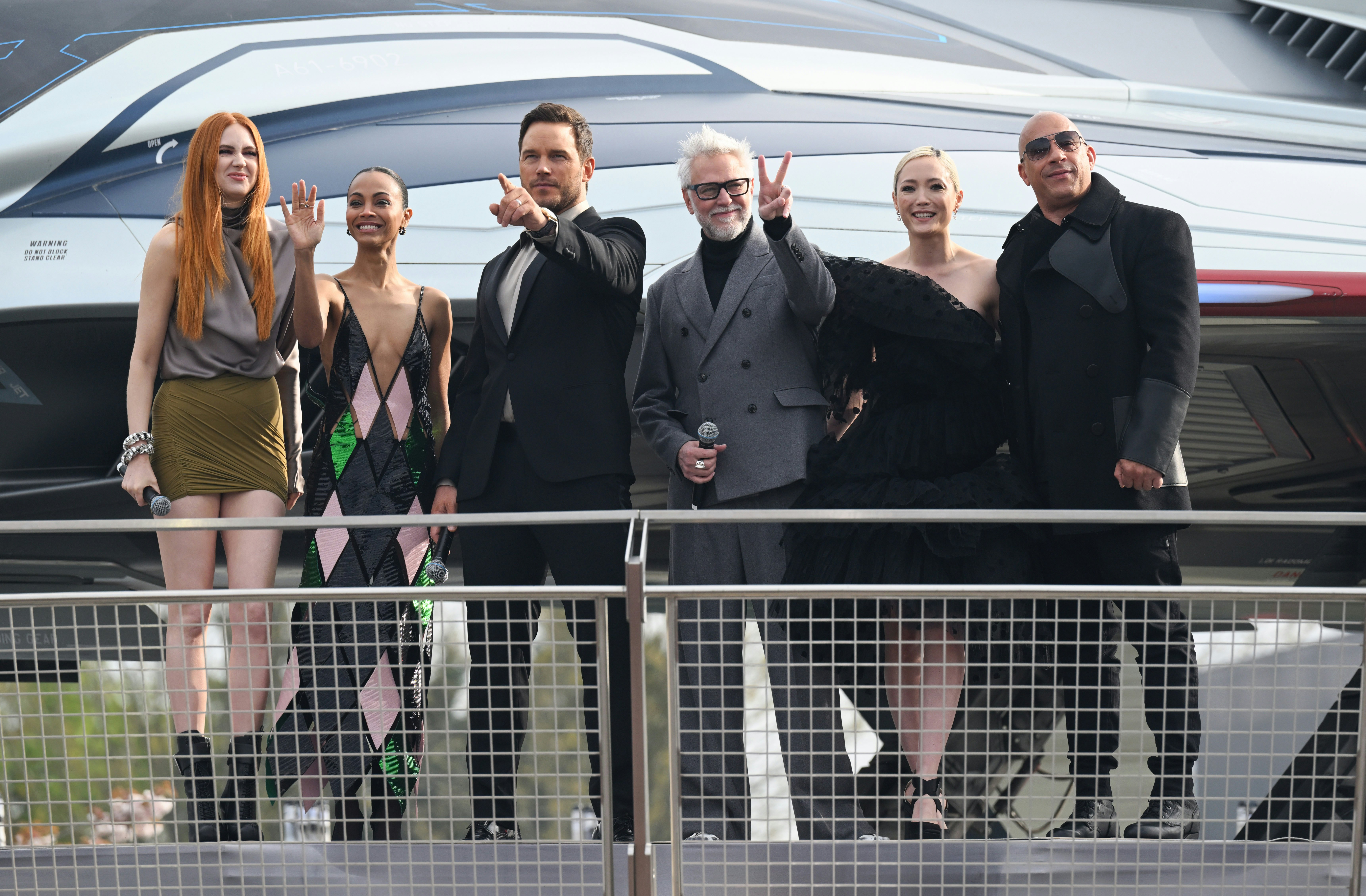
Regardless of its sales, Guardians of the Galaxy always maintained the vibe of Marvel’s best open secret. Former editor Bill Rosemann writes, “Throughout the history of Marvel, there is an opportunity to ‘fly under the radar’ and take creative risks on underappreciated heroes you know in your bones can be stars given the love and nurturing we all crave.”
When the movie became the hit of the summer, the Guardians’ profile within Marvel skyrocketed and spawned all the video games and sequels — and yes, more comics — that fans have engaged with ever since.
“Suddenly,” Abnett says, “they had a toy that couldn't be broken after all.”







